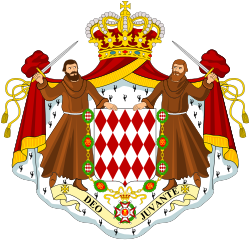| | |||||||||||||||||||||||
| |||||||||||||||||||||||
All 24 seats in the National Council 13 seats needed for a majority | |||||||||||||||||||||||
This lists parties that won seats. See the complete results below.
| |||||||||||||||||||||||
 |
|---|
General elections were held in Monaco on 9 February 2003. [1] The result was a victory for the Union for Monaco alliance, which won 21 of the 24 seats in the National Council. Within the alliance, twelve seats were won by the Union for the Principality, four by the National Union for the Future of Monaco, three by Promotion of the Monegasque Family and two by Rally for Monaco. [2]